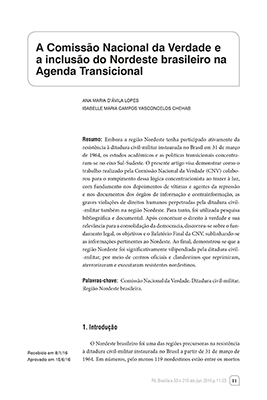Mandado de injunção e sentimento constitucional
Eriberto Francisco Bevilaqua Marin
Pedro Henrique Araújo de Alvarenga Bezerra
Resumo
O mandado de injunção é ação constitucional prevista no artigo 5º, inciso LXXI, da Constituição da República Federativa do Brasil (CRFB), posta à disposição das pessoas físicas ou jurídicas em face de um caso concreto, o qual tem por objetivo a proteção de direitos e garantias constitucionais e das prerrogativas inerentes à nacionalidade, soberania e cidadania, cujo exercício esteja inviabilizado por falta total ou parcial de norma regulamentadora, seja do legislador, seja de órgão administrativo. Trata-se de um instrumento jurídico-processual que reverbera a tendência do constitucionalismo contemporâneo de ênfase na força normativa da Constituição. Nos trinta anos da CRFB, o mandado de injunção não induziu, com algumas exceções, a atividade de promulgação de leis regulamentadoras. Nesse sentido, uma teorização sobre o sentimento constitucional, como mudança de consciência cívica e atitude, pode contribuir para o acesso aos direitos e o diálogo constitucional com vista à decolagem e consubstanciação do compromisso de salvaguarda do projeto constitucional.
Palavras-chave
Mandado de injunção. Omissão inconstitucional. Sentimento constitucional. Acesso aos direitos. Diálogo constitucional.
Título, resumo e palavras-chave em inglês
MANDAMUS OF INJUNCTION AND CONSTITUTIONAL SENTIMENT
ABSTRACT: The mandamus of injunction is a constitutional action regulated by article 5, item LXXI, of the Brazilian Constitution of 1998, and it is an instrument that can be used by both physical persons and legal entities, in the face of a concrete case, with the purpose to protect the constitutional rights and guarantees and prerogatives such as the ones inherent to nationality, sovereignty and citizenship that are being hindered by the total or partial lack of a regulatory act from the Legislator or from the Public Administrative Bodies. It is a legal-procedural instrument that reflects the trend of the contemporary constitutionalism with emphasis on the normative force of the Constitution. Over the thirty years existence of our current Constitution, the Mandamus of Injunction did not induce, with some exceptions, the activity of promulgation of regulatory acts. In this sense, theorizing about the importance of a constitutional sentiment, which might promote a shift in the civic consciousness and attitude, may contribute to the access of the rights and also to the constitutional dialogue and, consequently, lead to a stronger commitment to safeguard the constitutional project.
KEYWORDS: MANDAMUS OF INJUNCTION. UNCONSTITUTIONAL OMISSION. CONSTITUTIONAL SENTIMENT. ACCESS TO RIGHTS. CONSTITUTIONAL DIALOGUE.
Como citar este artigo
(ABNT)
MARIN, Eriberto Francisco Bevilaqua; BEZERRA, Pedro Henrique Araújo de Alvarenga. Mandado de injunção e sentimento constitucional. Revista de Informação Legislativa: RIL, v. 55, n. 219, p. 53-73, jul./set. 2018. Disponível em: <http://www12.senado.leg.br/ril/edicoes/55/219/ril_v55_n219_p53>.
(APA)
Marin, E. F. B., & Bezerra, P. H. A. A. (2018). Mandado de injunção e sentimento constitucional. Revista de Informação Legislativa: RIL, 55(219), 53-73. Recuperado de http://www12.senado.leg.br/ril/edicoes/55/219/ril_v55_n219_p53
